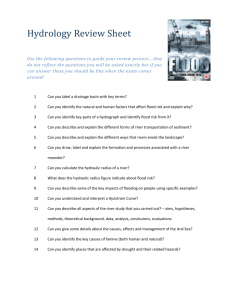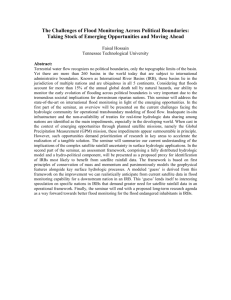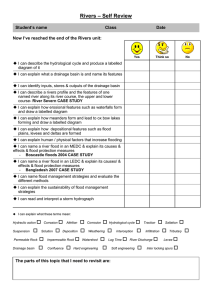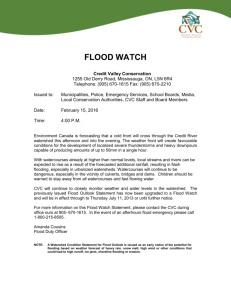GENERAL OBJECTIVE: Assessment of proposed dam site technical
advertisement
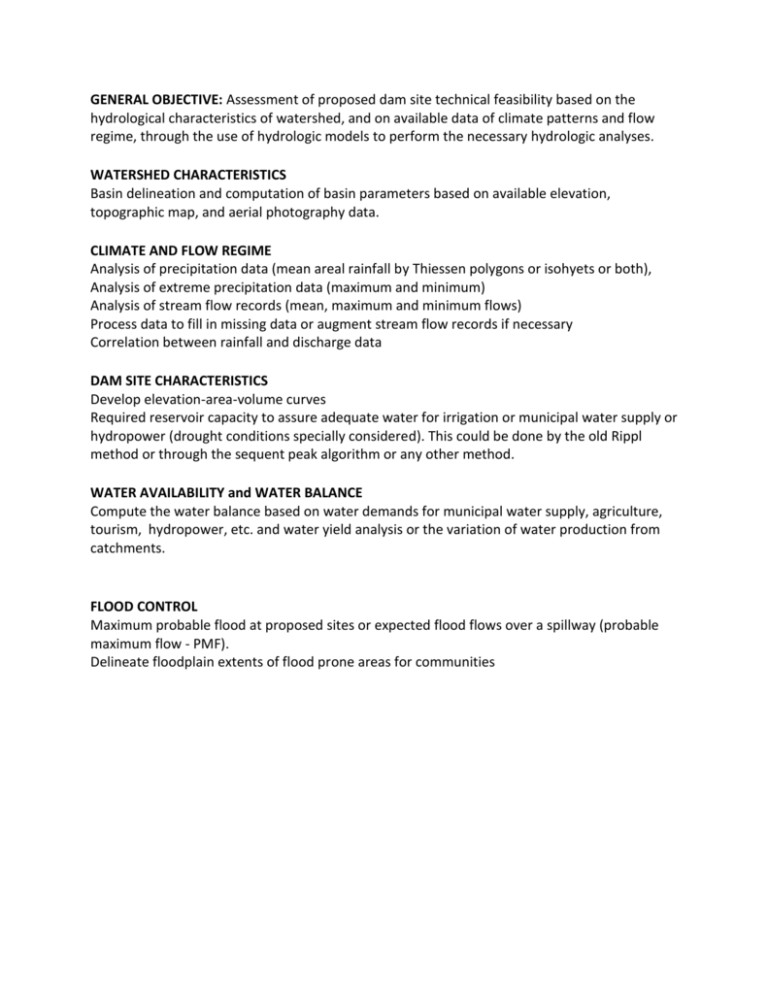
GENERAL OBJECTIVE: Assessment of proposed dam site technical feasibility based on the hydrological characteristics of watershed, and on available data of climate patterns and flow regime, through the use of hydrologic models to perform the necessary hydrologic analyses. WATERSHED CHARACTERISTICS Basin delineation and computation of basin parameters based on available elevation, topographic map, and aerial photography data. CLIMATE AND FLOW REGIME Analysis of precipitation data (mean areal rainfall by Thiessen polygons or isohyets or both), Analysis of extreme precipitation data (maximum and minimum) Analysis of stream flow records (mean, maximum and minimum flows) Process data to fill in missing data or augment stream flow records if necessary Correlation between rainfall and discharge data DAM SITE CHARACTERISTICS Develop elevation-area-volume curves Required reservoir capacity to assure adequate water for irrigation or municipal water supply or hydropower (drought conditions specially considered). This could be done by the old Rippl method or through the sequent peak algorithm or any other method. WATER AVAILABILITY and WATER BALANCE Compute the water balance based on water demands for municipal water supply, agriculture, tourism, hydropower, etc. and water yield analysis or the variation of water production from catchments. FLOOD CONTROL Maximum probable flood at proposed sites or expected flood flows over a spillway (probable maximum flow - PMF). Delineate floodplain extents of flood prone areas for communities

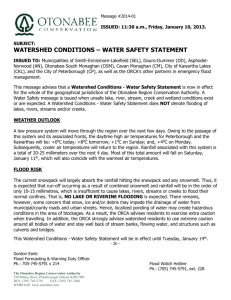
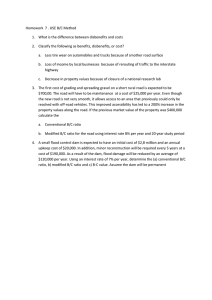
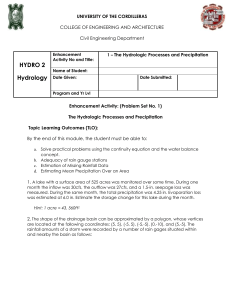
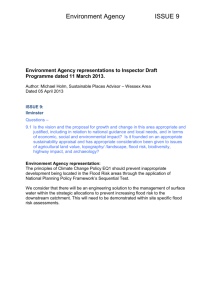
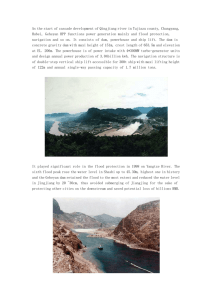
![My Flood Project [WORD 624KB]](http://s3.studylib.net/store/data/007180649_1-37937117fa0d9f223031a6f75d9a4179-300x300.png)

